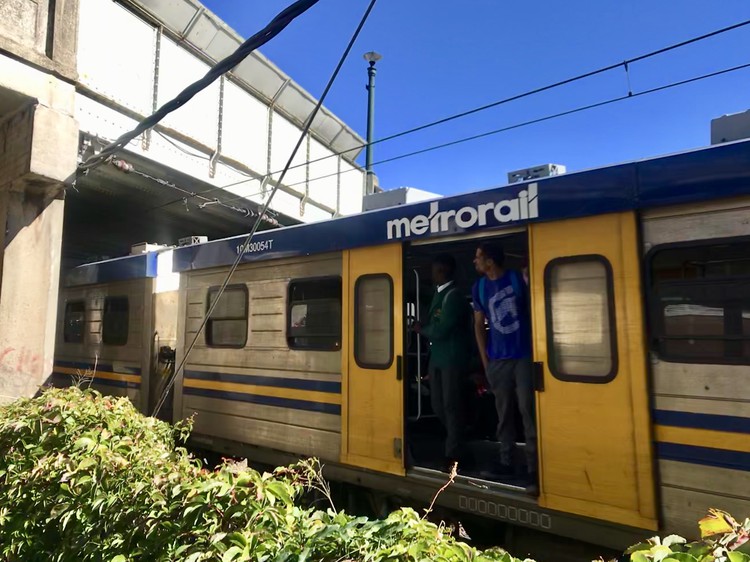
Both the Western Cape High Court and the Constitutional Court have delivered judgments that hold PRASA liable for injuries to passengers that occurred because the doors were open while trains were moving. Archive photo: Brent Meersman
7 December 2018
The Western Cape High Court on Thursday rejected an appeal application by the Passenger Rail Agency of South Africa (PRASA), maintaining its original judgment that the agency is liable for the injuries and compensation of a man who was pushed from a moving train during a robbery on Cape Town’s northern line in 2011.
On 16 November 2017, Acting Judge Janet McCurdie ruled that PRASA was “negligent” and that Masibulele Rautini would not have been injured “had PRASA ensured the doors were kept closed”. She ruled that PRASA would have to fully compensate Rautini for all damages suffered. PRASA applied for leave to appeal the ruling in February 2018, but this was denied on 6 December.
Rautini is 28 years old and his injuries have made it impossible for him to work. He has been on a disability grant since 2012, from which he currently receives R1,600 per month.
“I am very happy [about the judgment] because I have been struggling,” Rautini told GroundUp. “When I got injured my life stopped … It is not nice to go from being able to do everything for yourself to being in a wheelchair.”
Rautini said he has pins in his leg and although he doesn’t need a wheelchair anymore he now has a permanent limp, can only walk short distances and can’t stand for very long. He said he worked as a gardener before the accident.
PRASA’s lawyers argued that Rautini jumped out of the train, but acting judge McCurdie ruled this out, saying that allowing a train to operate with open doors is “fundamentally unacceptable”.
PRASA also questioned why Rautini only reported the incident months after it took place, when evidence showed that he was discharged from hospital after two weeks.
McCurdie pointed out that after suffering a brain injury, neck fracture, multiple leg fractures, recovering from several orthopaedic surgeries and not having much money, it would have been difficult to expect Rautini to promptly attend to legal matters.
“We are very satisfied with this outcome and that we are a significant step closer to recovering the compensation long due to Mr Rautini,” said Jan Potgieter, Rautini’s lawyer in the case.
Potgieter said the matter will now be re-enrolled on the pre-trial roll so that Rautini’s compensation can be determined.
“We are currently considering the judgment and once that is done we will consult and take instruction from PRASA,” said Godwin Bossr of Werksmans Attorneys, PRASA’s legal representative in the matter.
“They must compensate my child, for a young person not to be able to work and live on a grant is not nice,” said Rautini’s mother Nobongile. “I can see it hurts him … This is a struggle, life is a struggle … I want my child to be able to have the life he deserves.”
On 26 November 2015, the Constitutional Court dismissed a PRASA appeal in a case similar to Rautini’s.
In 2011, Irvine van Sam Mashongwa sustained serious injuries and had to have his leg amputated after being thrown out of a moving train by three attackers.
The Gauteng Division of the High Court in Pretoria ruled that PRASA was negligent and liable for Mashongwa’s injuries, ordering the rail agency to pay him full damages and legal costs.
PRASA appealed to the Supreme Court of Appeal (SCA), which set the order aside on the grounds of there being adequate security measures in place on the train. However, Mashongwa appealed the SCA ruling at the Constitutional Court, which set aside the SCA ruling and upheld Mashongwa’s appeal with costs.
Constitutional Court judge Mogoeng Mogoeng wrote in a unanimous judgment that PRASA had failed to perform the “mundane” and “obvious” task of keeping the doors of its train carriages closed while they were moving.
“PRASA’s failure to keep the doors closed while the train was in motion is the kind of conduct that ought to attract liability,” wrote Mogoeng.
The full bench of judges was of the view that PRASA had breached its public law obligation to safeguard passengers.